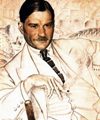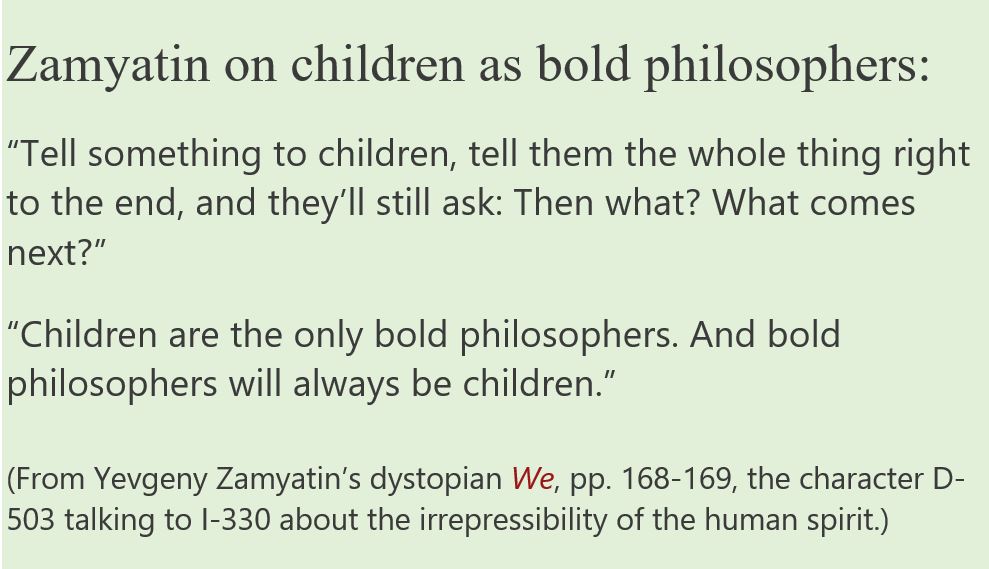“Tell something to children, tell them the whole thing right to the end, and they’ll still ask: Then what? What comes next?”
“Children are the only bold philosophers. And bold philosophers will always be children.”
From Yevgeny Zamyatin’s dystopian We, pages 168-169, D-503 talking to I-330 about the irrepressibility of the human spirit.
Zamyatin was born in 1884 some 200 miles south of Moscow and trained as an engineer. As a young man he joined the Bolsheviks but became critical of the brutality of the new regime after the 1917 revolution. We was written by 1921 but was suppressed in the Soviet Union. Zamyatin, however, was allowed by Josef Stalin to leave the Soviet Union. He settled in Paris, where he died in 1937.
We was an influence on a generation of dystopian novels: Aldous Huxley’s Brave New World (1932), Ayn Rand’s Anthem (1938), and George Orwell’s Nineteen Eighty-Four (1949), all of which explore the human-crushing combination of advanced technology with authoritarian communalism.
Huxley and Orwell follow Zamyatin in portraying a high-tech authoritarian-communalism as a real possibility; Rand’s portrait is decidedly more low-tech. Rand follows Zamyatin in using a first-person narrator and in assigning her characters numerical names, while Huxley and Orwell use the third-person and Anglo-Saxon names.
Interesting also that of the four most famous names in this genre, two are Russian-born and two English-born.

